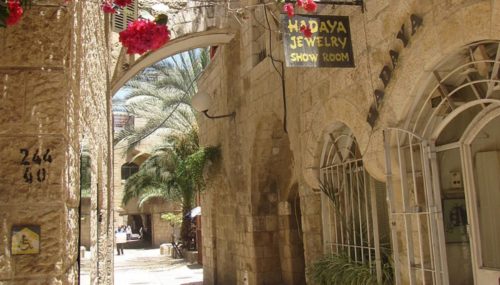As I have mentioned here before, the best way to learn a new language is through immersive experiences. If you are planning to be in Israel, there are certainly many ulpan programs (immersive Hebrew language courses) to choose from. But, by far one of the more unique ways to learn Hebrew and absorb Israeli culture is to work on a kibbutz in Israel. You can do this either by being a kibbutz volunteer or by joining a formal kibbutz ulpan program.
What is an Israeli Kibbutz?
The kibbutz in Israel is a unique communal settlement where people live and work together in an atmosphere of mutual aid and social justice. These settlements are really micro-societies founded on the principles of communal ownership of property, equality, and the cooperation of production, consumption and education.
micro-societies founded on the principles of communal ownership of property, equality, and the cooperation of production, consumption and education.
The kibbutz Israel movement began in the early 1900s, some 40 years before the establishment of the State of Israel in 1948. The first kibbutz in Israel called Degania was established in 1909 by a group young Jewish pioneers, mainly from Eastern Europe, who wanted to forge a new way of life.
Today there are approximately 270 kibbutzim, with memberships ranging from 40 to more than 1,000, are scattered throughout the country. Most of them have between 300 and 400 adult members, and a population of 500-600. The number of people living in kibbutzim totals approximately 130,000, about 2.5 percent of the country’s population. At the beginning of the kibbutz Israel movement, all kibbutzim were involved in agriculture. These days, however, almost every Israeli kibbutz has branched out into other industries.
Most kibbutz members work in a specific section of the kibbutz, while the more “mundane” jobs, such as dining room duties, are rotated among members. When there are not enough members are available for a particular job, outside workers and volunteers may be brought. Typically, people are paid wages or receive room and board when working or volunteering on a kibbutz.
Life Working and Volunteering on a Kibbutz in Israel
There is one thing that you need to be aware of if you are thinking of working or volunteering on a kibbutz: it can be a lot of work. And, that work may at times be unpleasant and hard. In other words, don’t join a kibbutz ulpan if you are looking for an easy ride.
Depending on where you are assigned to work, your day will probably start around 6:00 to 7:00 a.m. and will finish sometime in the afternoon. Keep in mind also that in Israel, there is a six day work week: Sunday through Friday.
Typical jobs on a kibbutz in Israel include: dishwasher, field work, gardening, cowsheds, chickens, factory, dining room duties, garage, supplying the nurseries with supplies, laundry, and looking after children (though this is usually only for females). These assignments tend to rotate every few weeks (sometimes sooner), so don’t worry if you don’t particularly like your job.
There will be coffee and lunch breaks worked into your schedule and you can sometimes negotiate time off- especially if you put in some real effort during working hours. Obviously, the summer months are most popular for those looking for a kibbutz Israel experience, so competition for places is higher.
Kibbutz Ulpan Programs in Israel
The Kibbutz Ulpan is a five-month work-study program for young adults between the age of 18 to 30. There are currently nine kibbutzim in Israel that offer official ulpan programs where participants can learn conversational Hebrew while working and living on the kibbutz. You can find out more information and register for a kibbutz ulpan at kibbutzulpan.org.
Below is a list of the Israeli kibbutz ulpan programs:
Kibbutz Tzova– Located in the Judean Hills. The program is for individuals and married couples without children 22-35. Candidates must have either a university degree or a professional diploma.
Kibbutz Yagur– Located in the Northern Israel, at the base of Mount Carmel- approximately 10 minutes from Haifa. Kibbutz Yagur is one of the largest kibbutzim in Israel and operates within many industries
Kibbutz Ma’agan Michael– Located 30 km south of Haifa, Ma’agan Micheal is the largest kibbutz in Israel with a population of over 1,400.
Kibbutz Ein HaShofet– Kibbutz Ein HaShofet is located in northern Israel, about thirty minutes from Haifa. Participants in the kibbutz ulpan program study three days a week and work two days a week. The study program includes tours throughout Israel, seminars and lectures.
Kibbutz Ramat Yochanan– Kibbutz Ramat Yochanan is located in the North of Israel, not far from Haifa. The kibbutz ulpan runs two times a year (March and September) for those between the ages of 18 to 30. The students live on the kibbutz, study Hebrew in the Ulpan three days a week and work on the kibbutz three days a week for 8 hours per day.
Kibbutz Mishmar HaEmek– Mishmar HaEmek is a fully communal and collective kibbutz located in northern Israel near Afula. Like the kibbutz ulpan programs mentioned above, Mishmar HaEmek hosts two five-month Ulpan programs a year, with a maximum of 25 students between the ages of 18 to 30.
The following three Israeli Kibbutz programs offer Kosher Food: Sde Eliyahu (a modern Orthodox Kibbutz), Naan, and Mishmar Hasharon.
Sde Eliyahu– Kibbutz Sde Eliyahu is a Modern Orthodox Religious Kibbutz located in the Bet Shean valley near the Jordanian border.
Kibbutz Naan– Kibbutz Naan is one of the biggest kibbutzim in Israel, located in the central part of the country, near to Rehovot. Its central location makes it more accessible to other parts of the country.
Mishmar Hasharon– Kibbutz Mishmar HaSharon is located in central Israel. It’s ulpan program is for students between the ages of 18-28.






Is there anything like this for over 60’s
Hi Shoshanah,
You may want to check out this site: https://www.kibbutzimer.com/.
I don’t know how good their program is, but it does seem to be an option for older adults.